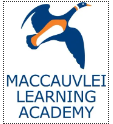The purpose of this skills programme is to provide learners with a set of skills to manage the finances of their unit as if they are running a mini-business. Learners leaving this course will be able to make critical decisions affecting the financial performance of their unit and the organisation.

The purpose of this skills programme is to provide learners with a set of skills to manage the finances of their unit as if they are running a mini-business. Learners leaving this course will be able to make critical decisions affecting the financial performance of their unit and the organisation as a whole.
Outcomes:
Here at Maccauvlei, we make use of the Brinkerhoff six-stage model, which we divided into a three-phase approach. This approach ensures that all your specific individual needs are met and that you leave our academy feeling full and satisfied with knowledge.
Training must meet two crucial criterion: It must produce learning changes with efficiency and efficacy. If it does not result in some benefit to the organization, then it has no worth. Worth is defined as the extent to which HRD produces value to the organisation at a reasonable cost.
Our Philosophy:
Sedibeng go iwa ka tsela”
(You can only go to a fountain if you have a road)
We will assist you to build capacity and show you the way to find your sediba (fountain).
Values:
Maccauvlei Learning Academy provides purposeful development journeys through its unique mix of people, solutions and passion so that individuals, teams and organisations are empowered to make a difference
Honesty:
Honesty refers to an aspect of moral character and means positive and good attributes such as integrity, truthfulness, straightforwardness, including straightforwardness of conduct, along with the absence of lying, cheating, theft, etc. Furthermore, honesty means being trustworthy, loyal, fair, ethical and sincere.
Accountability:
Accountability is answerability, blameworthiness, liability and the expectation of account giving. Accountability is the acknowledgment and assumption of responsibility for actions, products, decisions and policies including the administration, governance and implementation within the scope of the role or employment position and encompassing the obligation to report, explain and be answerable for resulting consequences.
Trust:
The firm belief in the reliability, truth, ability, or strength of someone or something.
© 2025 coursetakers.com All Rights Reserved. Terms and Conditions of use | Privacy Policy